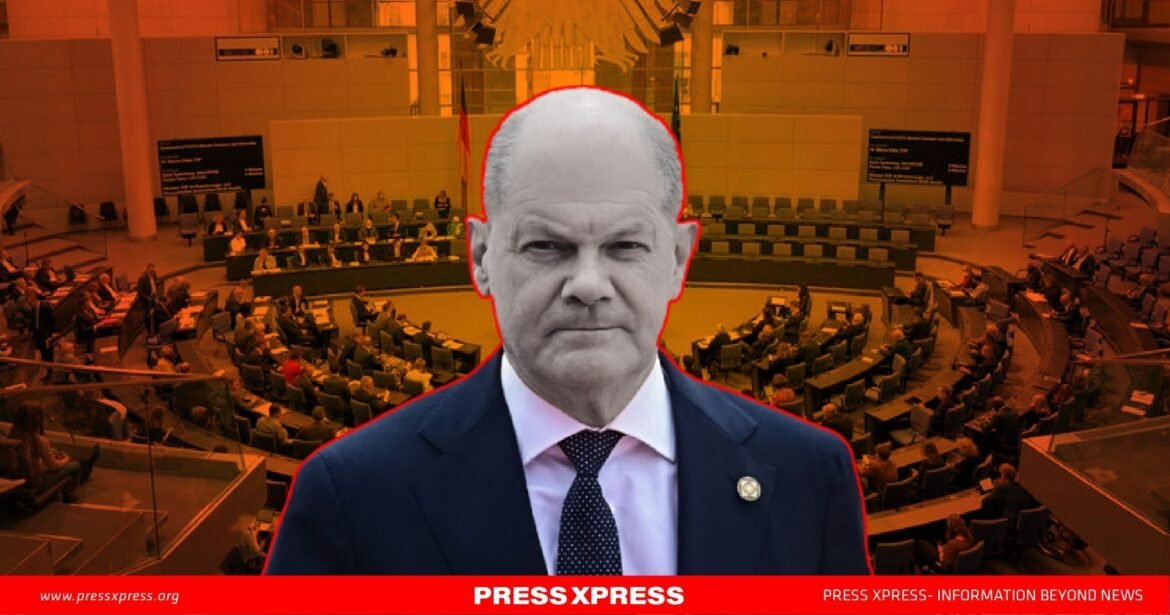Germany is set for snap elections on February 23, a move triggered by the sudden collapse of Chancellor Olaf Scholz’s coalition government. The three-party alliance, comprising Scholz’s Social Democratic Party (SPD), the Greens, and the Free Democratic Party (FDP), was Germany’s first federal tripartite coalition since WWII. Although Scholz initially aimed to unify diverse political ideologies, persistent divisions over economic policy, exacerbated by recent legal and fiscal challenges, ultimately made governing untenable.

The immediate cause of the coalition’s breakdown was a standoff over fiscal policy. Scholz sought to increase public spending to stimulate the economy and fund social and environmental projects, a stance supported by the SPD and Greens but firmly opposed by the FDP. The FDP, led by Finance Minister Christian Lindner, argued that expanding debt would risk long-term economic stability and insisted on adherence to Germany’s strict “debt brake” law, which limits borrowing.
Legal Ruling Exposes Fiscal Fractures
The coalition’s internal rifts deepened when Germany’s constitutional court struck down a creative workaround used by Scholz’s government to fund projects via “special funds” outside the main budget. This legal blow left a €60 billion hole in planned public spending and underscored the coalition’s failure to find common ground on fiscal policy. Scholz responded by firing Lindner, prompting the FDP to withdraw its support and bringing the coalition to an abrupt end.

This fiscal deadlock is symptomatic of broader issues in Germany’s increasingly fragmented political environment. The coalition’s ambitious plan to unite parties from across the spectrum struggled to address diverging priorities—especially regarding how to handle Germany’s sluggish economic recovery, rising energy costs, and climate goals. For many observers, the coalition’s collapse was inevitable, as these unresolved ideological tensions weakened governance.
Rising Far-Right Pressure Complicates Coalitions
Germany’s political fragmentation has been amplified by the ascent of the far-right Alternative for Germany (AfD), now polling near 20%. The AfD’s rise has forced mainstream parties to declare they will not collaborate with it, narrowing coalition options and complicating the formation of stable governments. While the conservative Christian Democratic Union (CDU), led by Friedrich Merz, leads polls with 32%, it may still need to forge alliances with other parties, possibly even the SPD, to secure a parliamentary majority.
The complexity of forming stable coalitions in a polarized landscape makes frequent elections more likely. Germany’s political landscape, once dominated by two-party coalitions, now requires multi-party alliances that often prove fragile.
Economic Strains and External Pressures Add Urgency
The snap election also comes at a crucial time economically. Germany’s manufacturing sector is struggling under high borrowing costs and waning export demand, prompting economists to forecast a second consecutive year of economic contraction. Scholz’s coalition had hoped to boost growth through increased public investment, but the legal ruling against expanded borrowing effectively limited fiscal options. As a result, Germany’s next government will need to navigate difficult decisions on debt, spending, and structural reform.
Externally, the timing is sensitive as well. Donald Trump’s return to the U.S. presidency has renewed trade tensions, with Trump vowing to revisit tariffs, including on German cars. Additionally, Germany faces pressure to adopt a stronger stance on security issues as Europe confronts a more assertive Russia and the economic implications of a global shift in trade alliances.
Snap Elections and the Road Ahead
Germany’s snap election will follow Scholz’s anticipated failure in a December confidence vote, which will then allow President Frank-Walter Steinmeier to dissolve the Bundestag and set the stage for February polls. For Scholz, the collapse of his coalition raises questions about his future as SPD leader, as the SPD currently polls at just 15.5%, trailing behind the CDU and the AfD. The upcoming election will likely place the CDU back in power, but given the political fragmentation, it, too, may face challenges forming a stable government.
The snap election is, above all, a response to the complexities of governing in a politically fragmented and economically strained environment. The immediate trigger may have been a fiscal dispute, but Germany’s path to early elections reflects a deeper struggle to adapt to a political landscape where coalition-building and compromise are increasingly difficult. In February, German voters will once again have the opportunity to choose a government, but the obstacles to stability are unlikely to disappear.


